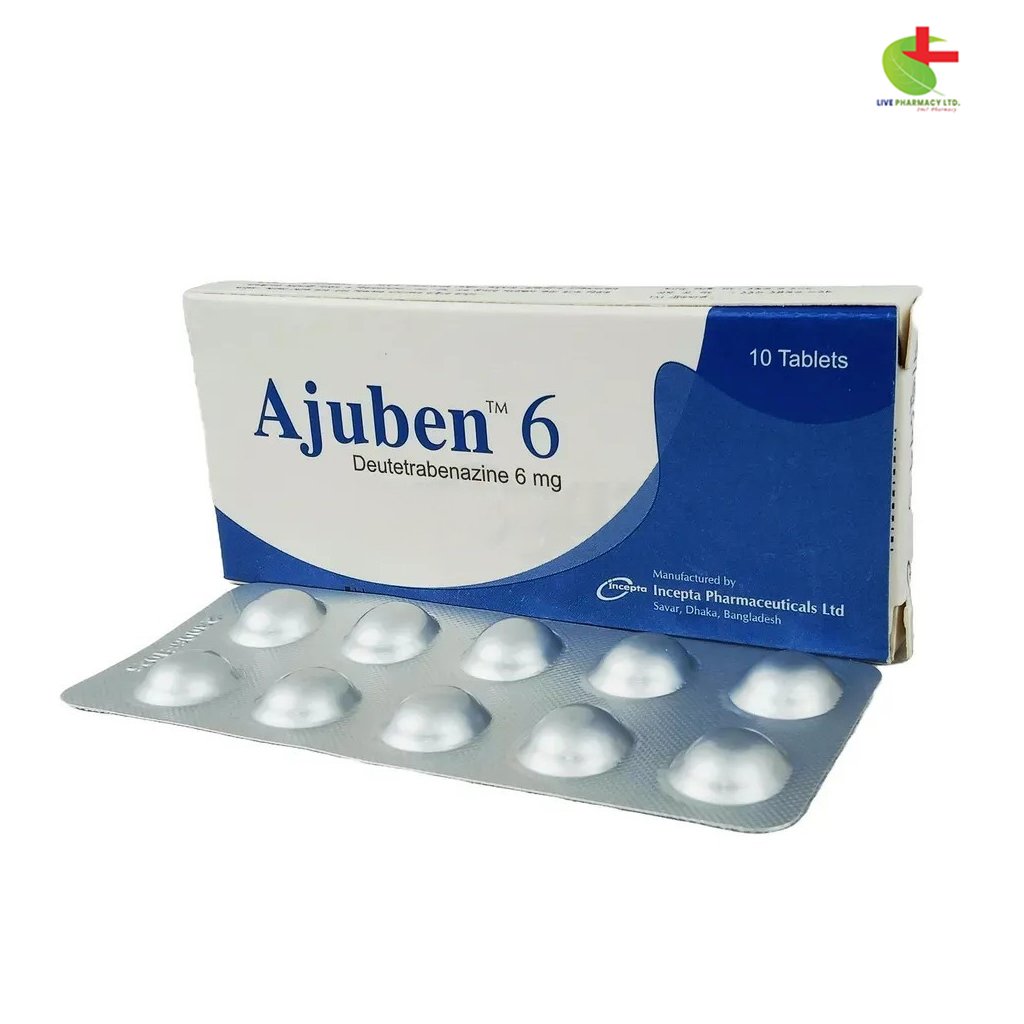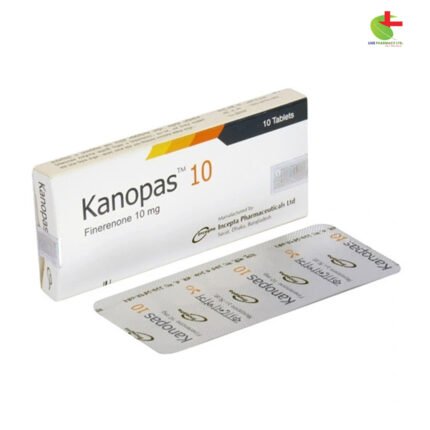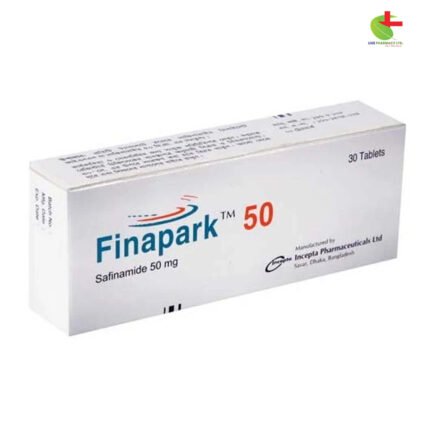Ajuben 6
700.00৳ Strip (10)
- Ajuben (Deutetrabenazine) is a VMAT2 inhibitor used to treat chorea associated with Huntington’s disease and tardive dyskinesia in adults.
- It works by depleting monoamines like dopamine and serotonin in the brain, helping to reduce involuntary movements.
- The dosage is adjusted based on individual response, with a maximum daily dose of 48 mg.
- Always use under the guidance of a healthcare professional.
 Brand
Brand
|
Incepta Pharmaceuticals Ltd |
|---|---|
 Generics
Generics
|
Deutetrabenazine |
 Type
Type
|
Tablet |
Indications
Ajuben is a vesicular monoamine transporter 2 (VMAT2) inhibitor used for the treatment of:
- Chorea associated with Huntington’s disease
- Tardive dyskinesia in adults
Always use Ajuben under the guidance of a registered healthcare provider.
Pharmacology
Ajuben (Deutetrabenazine) works by inhibiting vesicular monoamine transporter 2 (VMAT2), which plays a key role in the storage and release of neurotransmitters such as dopamine and serotonin. By reducing the amount of neurotransmitters released into nerve terminals, it helps control the symptoms of Huntington’s disease-related chorea and tardive dyskinesia.
Dosage & Administration
- For Huntington’s disease-related chorea:
- Initial dose: 6 mg/day
- Maintenance dose: 6 mg – 48 mg/day
- Maximum dose: 48 mg/day
- For Tardive dyskinesia:
- Initial dose: 12 mg/day
- Maintenance dose: 12 mg – 48 mg/day
- Maximum dose: 48 mg/day
Adjust the dosage weekly based on tolerance and symptom reduction, with a maximum daily dose of 48 mg, split into two doses. Administer with food.
For patients switching from Tetrabenazine, the starting dose of Ajuben is as follows:
- 12.5 mg Tetrabenazine → 6 mg Ajuben
- 25 mg Tetrabenazine → 6 mg Ajuben
- 37.5 mg Tetrabenazine → 9 mg Ajuben
- 50 mg Tetrabenazine → 12 mg Ajuben
- … and so on.
After switching, adjust the dose based on clinical response.
Drug Interactions
- Strong CYP2D6 Inhibitors: The maximum recommended dose of Ajuben is 36 mg/day (18 mg twice daily).
- Alcohol or Sedating Drugs: Co-administration may enhance sedation and somnolence.
Contraindications
Ajuben should not be used in patients with:
- Suicidal ideation or untreated depression
- Hepatic impairment
- Patients taking MAOIs, reserpine, or tetrabenazine.
Side Effects
Common side effects of Ajuben include:
- Somnolence
- Diarrhea
- Dry mouth
- Fatigue
Pregnancy & Lactation
There is limited data on the effects of Ajuben during pregnancy, and its safety in breastfeeding has not been established. Use only if the potential benefit justifies the potential risk to the fetus or infant.
Precautions & Warnings
Patients may experience:
- Neuroleptic Malignant Syndrome: Discontinue Ajuben immediately if this occurs.
- Akathisia, agitation, restlessness: Reduce the dose or discontinue use.
- Sedation/Somnolence: May impair daily activities.
Use in Special Populations
- Children: Safety and effectiveness in children have not been established.
- Hepatic & Renal Impairment: No clinical data on the impact of liver or kidney impairment.
- CYP2D6 Poor Metabolizers: Maximum recommended dose of 36 mg/day for poor CYP2D6 metabolizers.
Overdose Effects
Symptoms of overdose may include:
- Acute dystonia
- Oculogyric crisis
- Nausea, vomiting, confusion, hallucinations, and hypotension.
Storage Conditions
Store Ajuben below 30°C, away from light and moisture. Keep out of the reach of children.













Reviews
There are no reviews yet.